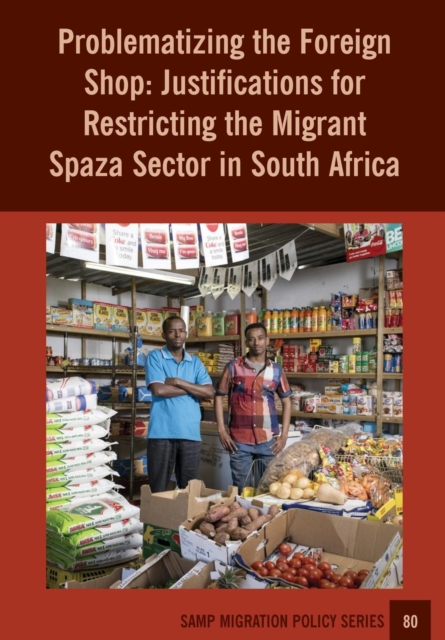
Problematizing the Foreign Shop : Justifications for Restricting the Migrant Spaza Sector in South Africa Paperback / softback
by Vanya Gastrow
Part of the Samp Migration Policy series
Paperback / softback
Description
Small businesses owned by international migrants and refugees are often the target of xenophobic hostility and attack in South Africa. This report examines the problematization of migrant-owned businesses in South Africa, and the regulatory efforts aimed at curtailing their economic activities. In so doing, it sheds light on the complex ways in which xenophobic fears are generated and manifested in the country’s social, legal and political orders. Efforts to curb migrant spaza shops in South Africa have included informal trade agreements at local levels, fining migrant shops, and legislation that prohibits asylum seekers from operating businesses in the country. Several of these interventions have overlooked the content of local by-laws and outed legal frameworks. The report concludes that when South African township residents attack migrant spaza shops, they are expressing their dissatisfaction with their socio-economic conditions to an apprehensive state and political leadership. In response, governance actors turn on migrant shops to demonstrate their allegiance to these residents, to appease South African spaza shopkeepers, and to tacitly blame socio-economic malaise on perceived foreign forces. Overall, these actors do not have spaza shops primarily in mind when calling for the stricter regulation of these businesses. Instead, they are concerned about the volatile support of their key political constituencies and how this backing can be undermined or generated by the symbolic gesture of regulating the foreign shop.
Information
-
Out of stock
- Format:Paperback / softback
- Pages:44 pages, Illustrations, black and white
- Publisher:Southern African Migration Programme
- Publication Date:03/08/2018
- Category:
- ISBN:9781920596439
Other Formats
- PDF from £23.20
Information
-
Out of stock
- Format:Paperback / softback
- Pages:44 pages, Illustrations, black and white
- Publisher:Southern African Migration Programme
- Publication Date:03/08/2018
- Category:
- ISBN:9781920596439










